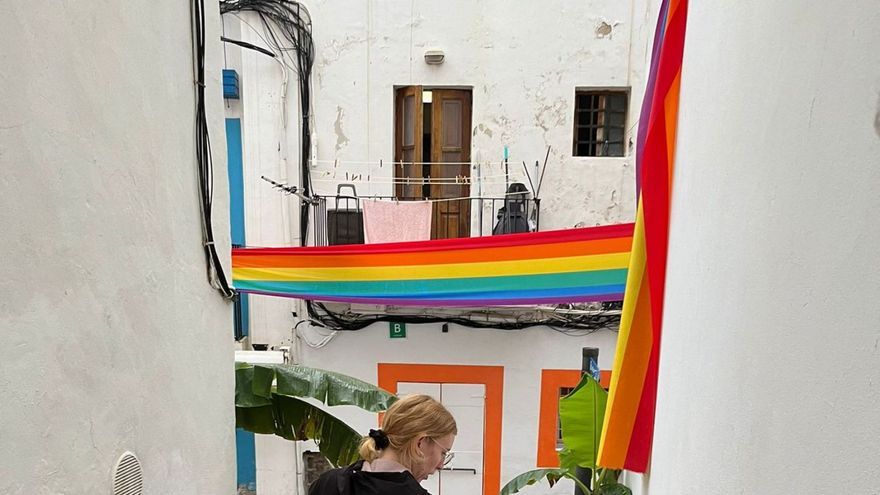It is 7:15am and María de la Heras and Laia Amores meet at the end of the Marina, where the last restaurant is. They are the coordinator of the Aprenem project and a social worker for the Ibiza City Council, two of the ten people who give support to the families of the historic center of Vila, mainly in the educational process of the children.
From there they go to the center of sa Miranda, where together with the monitor Blanca Torres and the educator Laura García, they prepare breakfast for the children who will be picked up in a few minutes. At 7.30am they start going up to sa Penya. “Good morning, are you ready?”, says one of them after knocking on the door a couple of times. House by house. In some, the children go out and are accompanied by the professionals to have breakfast and, in other cases, it is the mothers themselves who bring them to the center.
The children are offered a breakfast of milk, cocoa, cookies and fruit at sa Miranda’s facilities. Some eat it while others lose bits of food in their multiple runs between sips. “Have you taken the sandwich?”, asks one of the mothers to her little girl, who runs up the stairs after having forgotten it. In a little packet with their names on it, the children have their lunch ready for recess with the sausage they have previously chosen. She refills the water bottle and goes back downstairs. “As my son doesn’t like the bread here because it’s not as soft, I have bought him some, which I have frozen, and I put them in a little bag to soften them”, says another of the mothers.
This Thursday dawns with rain and instead of going the way they usually walk from the port of Ibiza to the school sa Graduada, where they study, they are going to do it by bus. “There is a new driver who has made a mistake and gone to the boats of Formentera,” says the project coordinator. So the families decided to do it on foot. It is already 8:40am and in just 20 minutes they should be in the classrooms and one of them in the nursery. “My son goes happily to class,” comments a mother while he sings the song of the moment by Rosalía.
But it is also good for them to know that their children are in school and they can go to work with peace of mind. De las Heras is aware that if they did not go house to house, day after day, knocking on the door to wake them up, most of them would not go to school. There are a total of 21 children (four more than last year), from zero years old to ESO, and their families have decided to make them part of the Aprenem project of the Ibiza City Council.
Last year was the pilot test, which ended with a considerable positive change: “Of the participants, there was 70% absenteeism and 30% who attended with some regularity to class. These percentages were changed and 70% attendence at school by the children,” De las Heras points out. Even so, 13% of the children have chronic absenteeism, that is, they have repeated absences and, in a single month, miss half of the days or more.
How does Aprenem support vulnerable children and their families?
It is a project that focuses on the most vulnerable families with the aim of addressing and preventing absenteeism and dropping out of school early, as well as teaching children to cope in educational environments and compensate for conditions of inequality while promoting the participation of families. The professionals, who belong to the Social Services area of the Ibiza City Council, are in direct contact with the center where the children study and, at the end of each month, they meet to find out how everything is working.
According to the coordinator, practically all of these families did not send their children to school until they were six years old, some not even that, so this project and the help provided to them are allowing them to turn the tables. She does not deny that it is hard and that it is complicated for the children to follow a class, but she assures that the parents do their best to make everything go as smoothly as possible. In the afternoons when they finish school, they participate in the socio-educational area set up at the sa Miranda facilities, where they carry out school reinforcement and recreational activities.
For the full article, please visit Diario de Ibiza website here.

